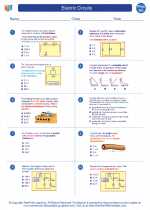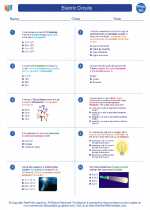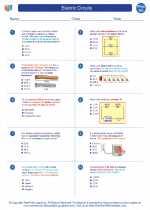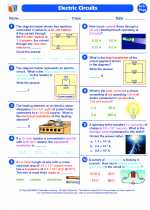Electric Circuits -> communities
Communities in Physics
In the context of physics, "communities" refer to groups of individuals who share a common interest in the field of physics. These communities can take the form of professional organizations, online forums, academic institutions, or even informal study groups. Being part of a physics community can provide valuable opportunities for learning, collaboration, and networking.
Types of Physics Communities
Physics communities can take various forms, including:
- Professional Organizations: These include groups such as the American Physical Society, the Institute of Physics, and the European Physical Society. These organizations often hold conferences, publish journals, and provide resources for physics professionals and students.
- Online Forums and Communities: Platforms like Physics Forums, Reddit's r/Physics, and Stack Exchange's Physics community provide spaces for physicists and physics enthusiasts to ask questions, share knowledge, and engage in discussions.
- Academic Institutions: Schools, colleges, and universities often have physics departments and student organizations that foster a sense of community among students, faculty, and researchers.
- Research Groups: Physicists often collaborate within research groups or labs, forming close-knit communities focused on specific areas of study.
Benefits of Being Part of a Physics Community
Being part of a physics community offers numerous benefits, such as:
- Learning Opportunities: Members can learn from one another, whether through formal lectures, informal discussions, or collaborative research projects.
- Networking: Connecting with other physicists can lead to new opportunities for collaboration, internships, jobs, and research partnerships.
- Support and Mentorship: Communities often provide support for students and early-career physicists, offering mentorship, advice, and resources.
- Access to Resources: Many physics communities provide access to journals, databases, funding opportunities, and educational materials.
Getting Involved
To become part of a physics community, consider the following steps:
- Join Professional Organizations: Explore membership options for organizations relevant to your interests and career goals.
- Participate in Online Forums: Engage in discussions, ask questions, and contribute to physics-related online communities.
- Attend Events and Conferences: Look for physics conferences, seminars, and workshops where you can meet and connect with other physicists.
- Get Involved Locally: If possible, join physics clubs, groups, or research initiatives at your school or in your local community.
Conclusion
Being part of a physics community can enrich your understanding of the field, open up networking opportunities, and provide a supportive environment for your physics endeavors. By actively participating in these communities, you can enhance your learning and contribute to the wider physics community.
.◂Physics Worksheets and Study Guides High School. Electric Circuits

 Worksheet/Answer key
Worksheet/Answer key
 Worksheet/Answer key
Worksheet/Answer key
 Worksheet/Answer key
Worksheet/Answer key
